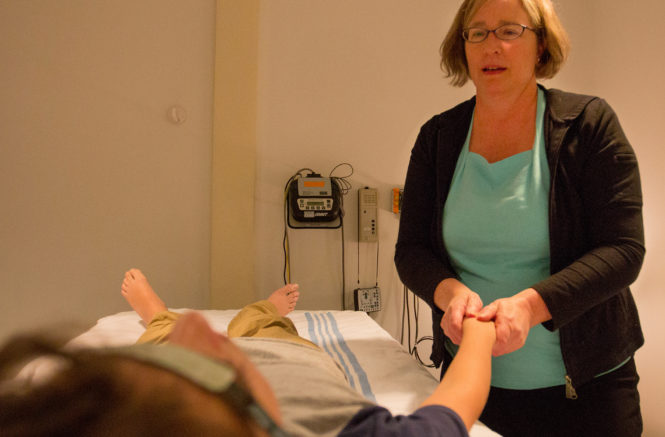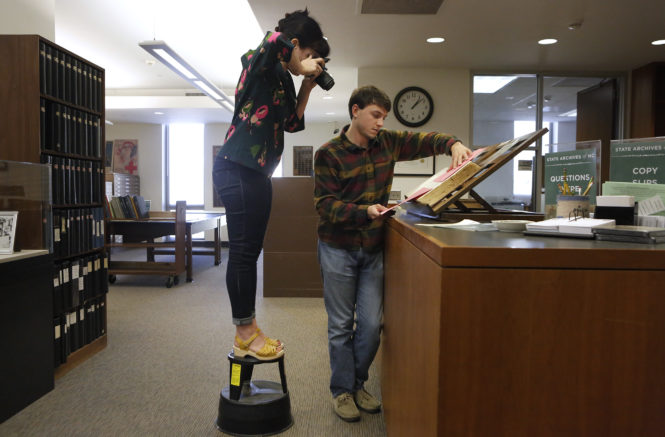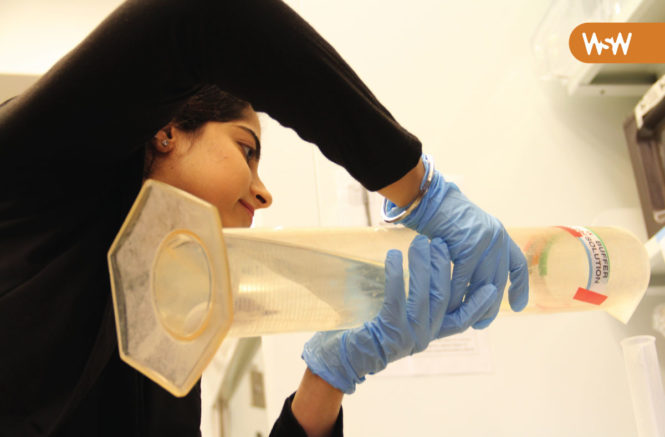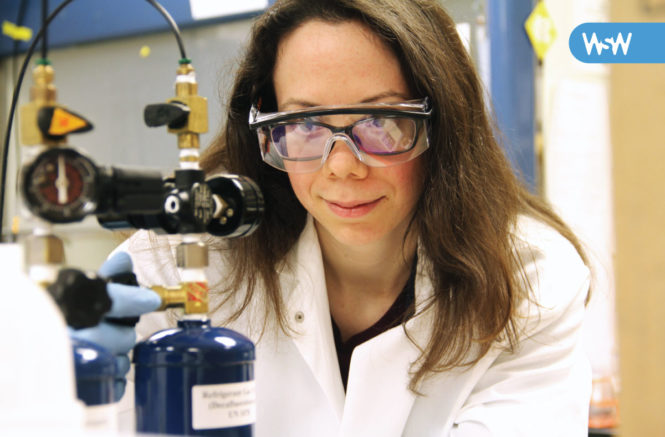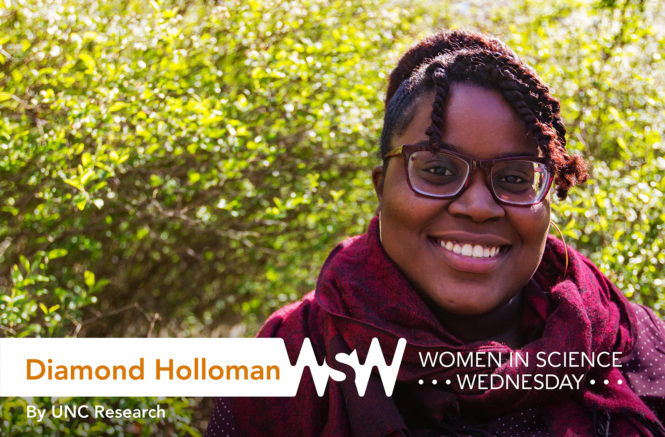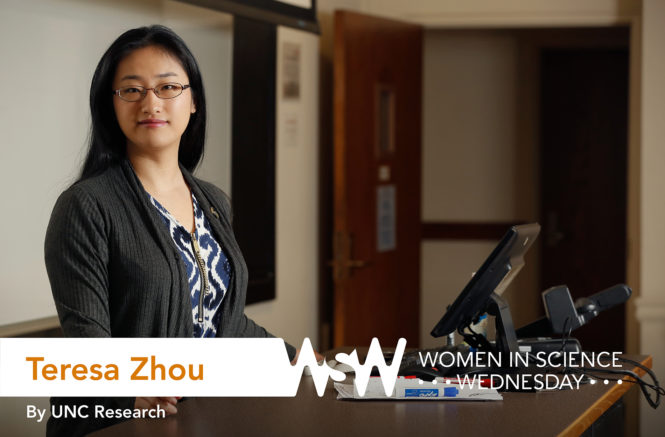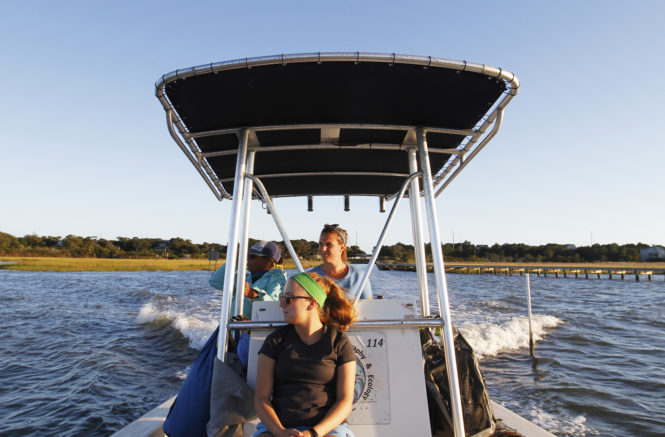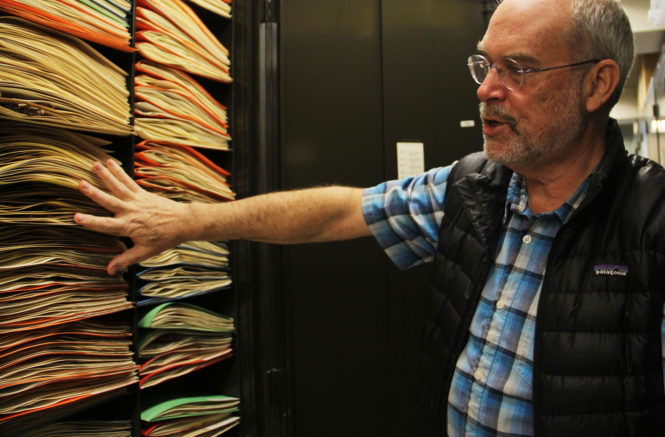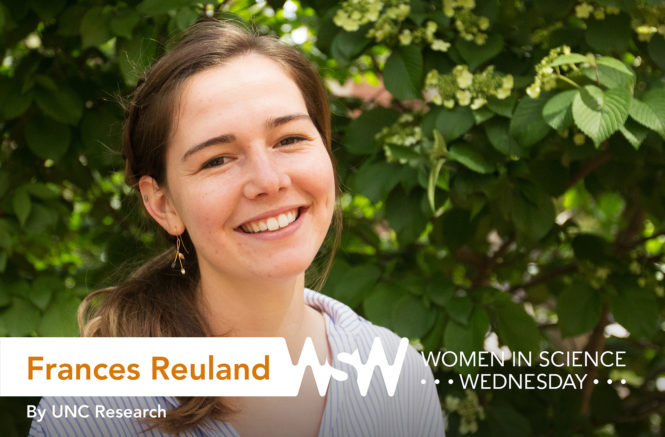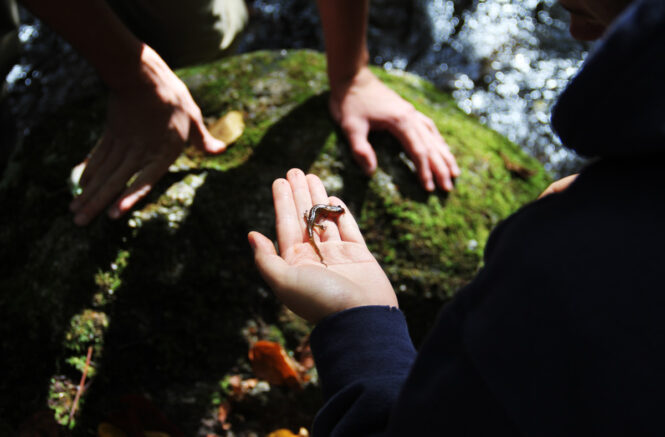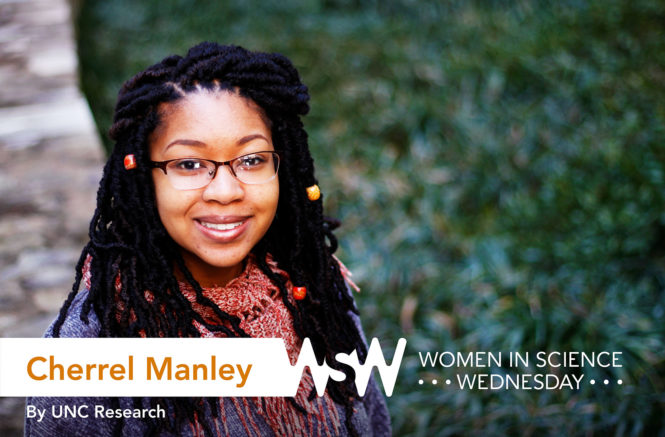A Massage for Your Brain
A series of studies by one research group in Oregon reported that, on average, children move one full level down the autism spectrum after 20 weeks of Qigong Sensory Training (QST) — a type of massage therapy adapted from Traditional Chinese Medicine. UNC postdoc Kristin Jerger found these results so intriguing that she has published a feasibility study for a new line of research on the neural mechanisms of QST massage.
Decoding Dorothea Dix Hospital
Can the creation of a new park be influenced by a centuries-old mental hospital? The City of Raleigh has tasked UNC Community Histories Workshop researchers with merging the past and the future at Dorothea Dix Park.
Kripa Ahuja
Rising junior Kripa Ahuja is an undergraduate researcher in the Division of Clinical Laboratory Science within the UNC School of Medicine. She is also a research assistant at the UNC Lineberger Comprehensive Cancer Center. Her research focuses on cloning the AAV-CXCL 12 gene — an important cancer biomarker.
Virginie Papadopoulou
Virginie Papadopoulou is a research assistant professor within the Joint Department of Biomedical Engineering at UNC and NC State. Her research focuses on the circulatory bubble dynamics that lead to decompression sickness in scuba divers and astronauts, and how physiological factors acting on microbubbles affect ultrasound cardiovascular imaging and cancer treatment.
Diamond Holloman
Diamond Holloman is a PhD student in the Curriculum for the Environment and Ecology within the UNC College of Arts & Sciences. Her research focuses on how vulnerable communities recover following major wet-weather disturbances like hurricane flooding.
Teresa Zhou
Teresa Zhou is a PhD student in the Department of Economics within the UNC College of Arts & Sciences. She is a recent recipient of a 2018 Impact Award from The Graduate School. Her research focuses on the policies that are most effective in attracting and retaining physicians in underserved and rural areas, and how changes in physician supply affect patient welfare in the United States.
Marsh Madness
North Carolina's marshes continue to fragment every day. Shelby Ziegler attempts to rebuild them by gathering data from the healthy wetlands that remain — a feat she often tackles in the middle of the night.
The Flora Files
In the last 50 years, botanists have discovered more than 500 new species of plants across the Southeast. But it takes decades to actually study and record their existence — a feat that the UNC Herbarium has been tackling since its inception in 1908.
Frances Reuland
Graduating senior Frances Reuland is a research assistant at The Water Institute. She is majoring in environmental sciences and Spanish, with a minor in chemistry within the UNC College of Arts & Sciences. She also plays on the varsity women’s soccer team. Her research focuses on how inadequate energy affects environmental health conditions and facility operations within Malawian healthcare systems.
Carolina to Cristóbal
After visiting the Galápagos Islands for a research project over winter break, senior Haley Moser hopes to pursue a career in community-centered research after graduating from Carolina this May.
Hunting for Salamanders in the Highlands
With more than 30 species of salamanders living in the Great Smoky Mountains National Park, the Highlands Biological Station, a UNC Institute for the Environment field site, conducts several student-led studies on these agile creatures each year.
Cherrel Manley
Senior Cherrel Manley is an undergraduate researcher within the UNC College of Arts & Sciences, majoring in biology with a minor in chemistry. She is also a McNair Scholar. Her research focuses on the relationship between maternal exposure to phthalates — substances commonly found in industrial chemicals — and pre-term births within the Norwegian Mother and Child Cohort Study.



